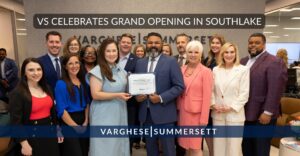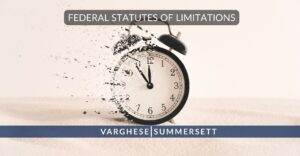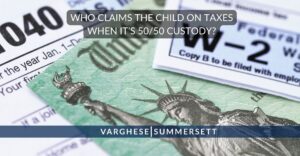Court Ruling: Are Eight-Liners Legal?
The Second Court of Appeals in Fort Worth addressed the issue of eight-liners in Texas. The issue was whether the eight-liner gambling machines are unconstitutional or illegal.
Short Answer: Eight-Liners are Illegal in Texas, according to the Second Court of Appeals.
What are Eight-Liner Machines?
An eight-liner machine is an electronic gaming machine that resembles a slot machine. Depending on the type of machine, a player generally ‘wins’ if a horizontal, vertical, or diagonal row of objects line up.
Texas law forbids gambling devices such as eight-liners from awarding cash prizes. However, an exception commonly referred to as the ‘fuzzy animal’ exception grants operators the ability to award non-cash prizes worth less than $5.
The Texas Constitution commands that the legislature passes laws that prohibit lotteries. Since 1845 the Texas Constitution has continuously prohibited lotteries. The word lottery includes various activities that involve (at minimum) the payment of consideration for a chance to win a prize. And case law has stated that the activity’s name itself does not make the slightest difference, than an activity can be considered a lottery when the element of chance is connected with or enters into the distribution of its prizes.
Even with the best of intentions, the state legislature cannot sanction a lottery of any type; a constitutional amendment is necessary. This has happened before, for instance, the legislature proposed and voters approved of a 1980 constitutional amendment to allow charitable bingo. This authorized legislature to allow and regulate “bingo games conducted by a church, synagogue, religious society, volunteer fire department, nonprofit veterans’ organization, fraternal organization, or a nonprofit organization supporting medical research or treatment programs.” A later amendment allowed ‘charitable raffles’ to be held by the same types of organizations. As it currently stands, these are the only types of lotteries the Texas Constitution allows.
The Fuzzy-Animal Exclusion
Texas authorities have concluded that slot machines or eight-liners are considered lottery, specifically in Queen v. State that as a matter of law states these machines as lottery. Eight-liners generally operate as video slot machines. 1n 1995, the legislature enacted an exclusion by adding Section 47.01(4)(B) to the Penal code that allowed amusement centers such as Chuck E. Cheese, Dave and Busters, and others with electronic and mechanical games that could arguably constitute lotteries or gambling problems by making this exception so that ‘if the contrivance designed, made, and adapted solely for amusement purposes if the contrivance rewards the player exclusively with noncash merchandise prizes, toys, or novelties, or a representation of value redeemable for those items that have a wholesale value available from a single play of the game or device of not more than 10 times the amount charged to play the game or device once or $5, whichever is less.’ Eight-liner owners started relying on this fuzzy-animal exclusion in arguing that their machines are not illegal gambling devices. Depending on how eight-liners awarded prizes of particular types, their argument had varying levels of success or failure. State v. $1,760.00 in U.S Currency held that these machines did not fall within the exclusion because the distributed tickets were not redeemable exclusively for noncash merchandise prizes, toys or novelties.
The Court concludes that with precedent stretching back more than a century, there is no doubt that eight-liners are lotteries and that without an amendment to the Texas Constitution, they are forbidden. The Second Court of Appeals was not swayed by the three arguments made in this case:
- Losing Argument 1: Legislature can’t define around the constitution
- The operators asserted that the Texas Constitution doesn’t define lottery, thus the legislature is free to decide within reason what the word means as it can also establish and define criminal offenses and applicable defenses. They say the fuzzy-animal exclusion represents nothing more than a proper exercise of the power of the legislature to establish definitional contours of lotteries. The Court disagrees with this assessment, citing that they consider “the intent of the people who adopted it,” but because discerning long-ago intent is difficult, they must give effect to the constitution’s plain language. Certainly, by 1876, a lottery was understood to involve the elements of chance, consideration, and prize. Because the operators stipulated that their eight-liners award prizes by chance and for consideration, the machines are lotteries, and the legislature cannot define around that fact. The legislature is not empowered to remove from the definition of ‘lottery’ a game that inarguably resembles the constitutional meaning of ‘lottery’.
- Losing Argument 1: The Fact that Not All Forms of Gambling are Lotteries is Irrelevant
- The Operators contended that while all lotteries are a form of gambling, not all forms of gambling are lotteries. The Operators pointed to Stanley v. State in which a marble machine was not found to be a lottery. From this case, Operators deduce that the question of what is and what is not a lottery does not distil to a handy three-part test. The Court deems that this is not relevant; in the matter of Stanley the machine was never described, and the tripartite test was never mentioned. In any event, the Operators have not sufficiently explained what elements beyond chance, consideration, and prize are pertinent when it comes to whether their eight-liners are unconstitutional lotteries. The Court concludes that what is and what is not a lottery does, in fact distill to a handy three-part test.
- Losing Argument 3: The 1980 Constitutional amendment didn’t change the fact that eight-liners are lotteries
- Before 1980 Article III, Section 47 read “The Legislature shall pass laws prohibiting the establishment of lotteries and gift enterprises in this state, as well as the sale of tickets in lotteries, gift enterprises or other evasions involving the lottery principle established or existing in other states”. After charitable bingo was approved in 1980 and charitable raffles and state lottery later was approved, the section now reads “The Legislature shall pass laws prohibiting lotteries and gift enterprises in this state other than those authorized by Subsections (b), (D), (D-1), and (e ) of this section. The Operators argued legal significance in the 1980 deletion of language about lottery ‘evasions,’ and the Court concedes it may be significant in some hypotheticals, however, eight-liners are not evasions involving the lottery principle as they are lotteries plain and simple.
Conclusion: Eight-Liners are Illegal in Texas
The Second Court of Appeals in Fort Worth ultimately ruled that these eight-liner machines are lotteries and are thus unconstitutional under Article III, which requires the legislature to pass laws prohibiting lotteries. Ultimately, this means that voters will have to approve a constitutional amendment to authorize eight-liners, similarly to how they have in the past made amendments for charitable bingo and the state lottery.



